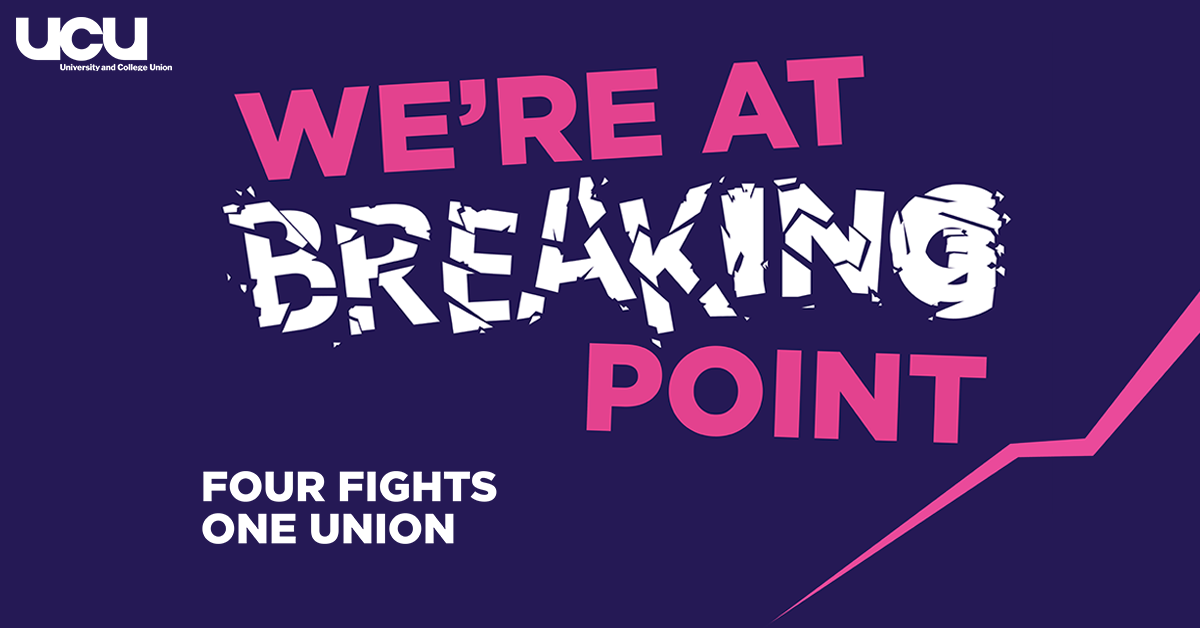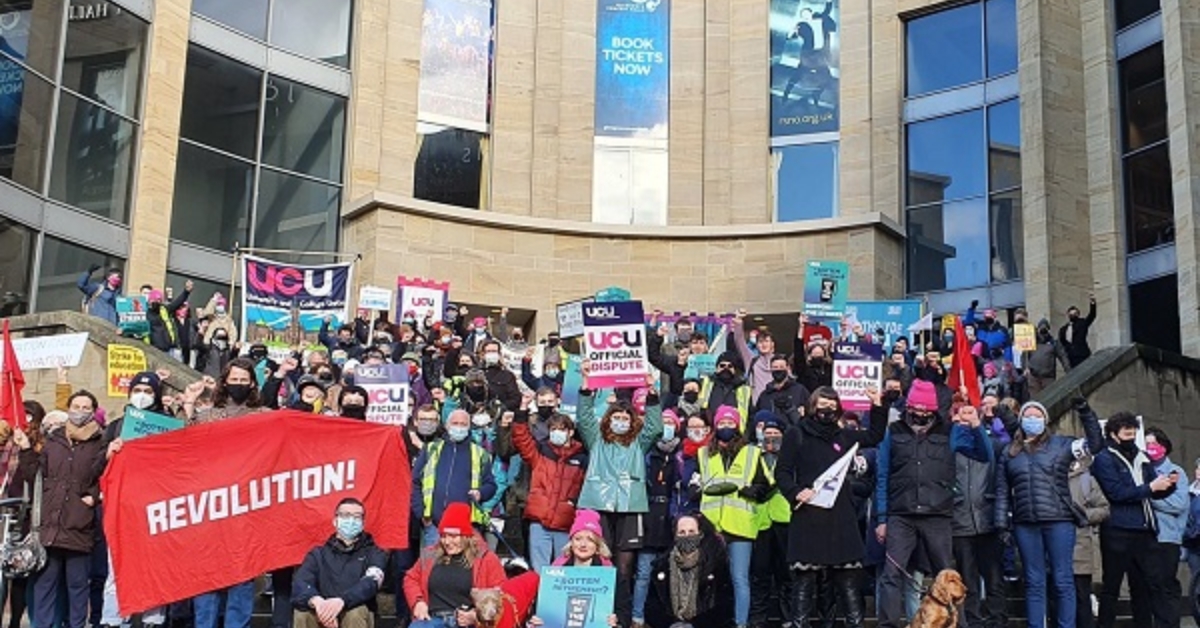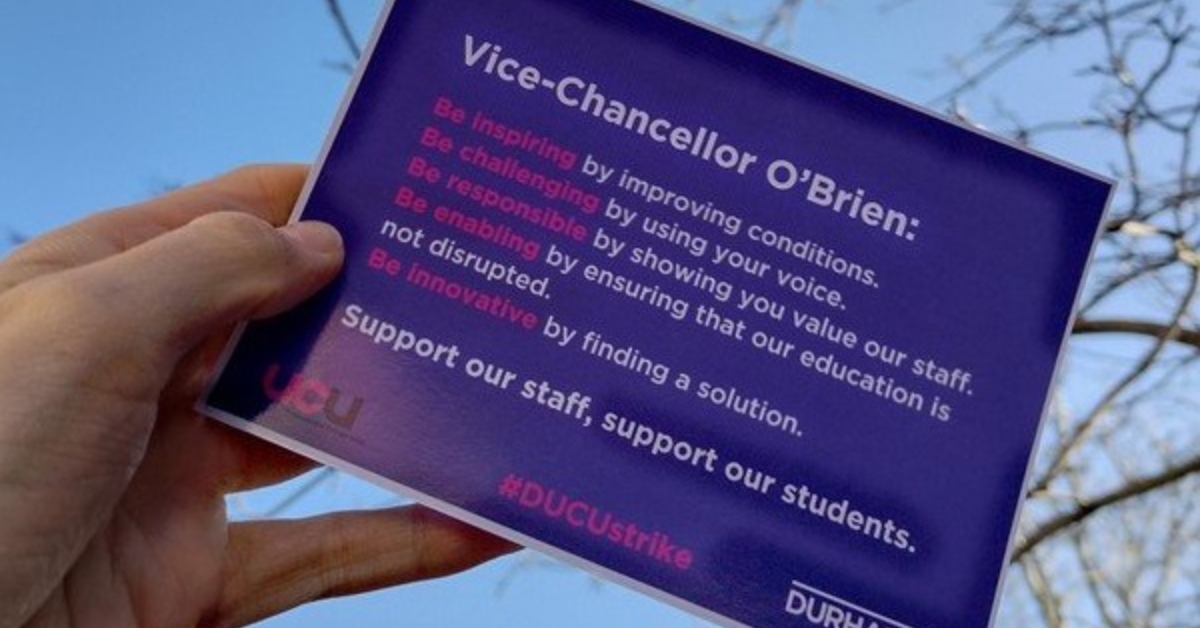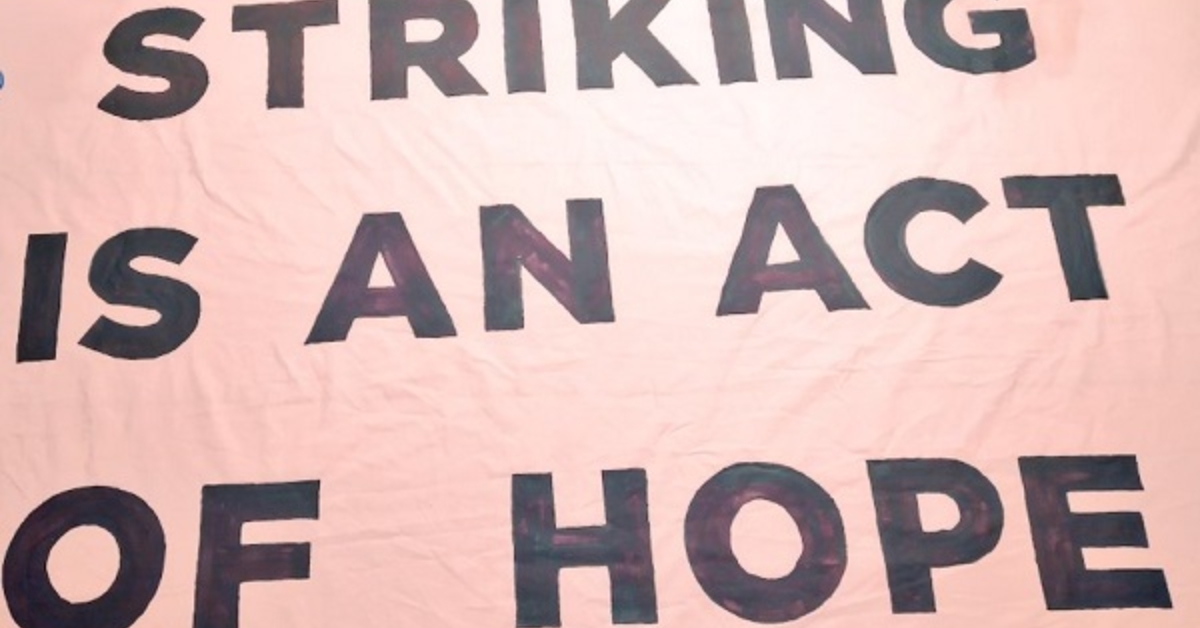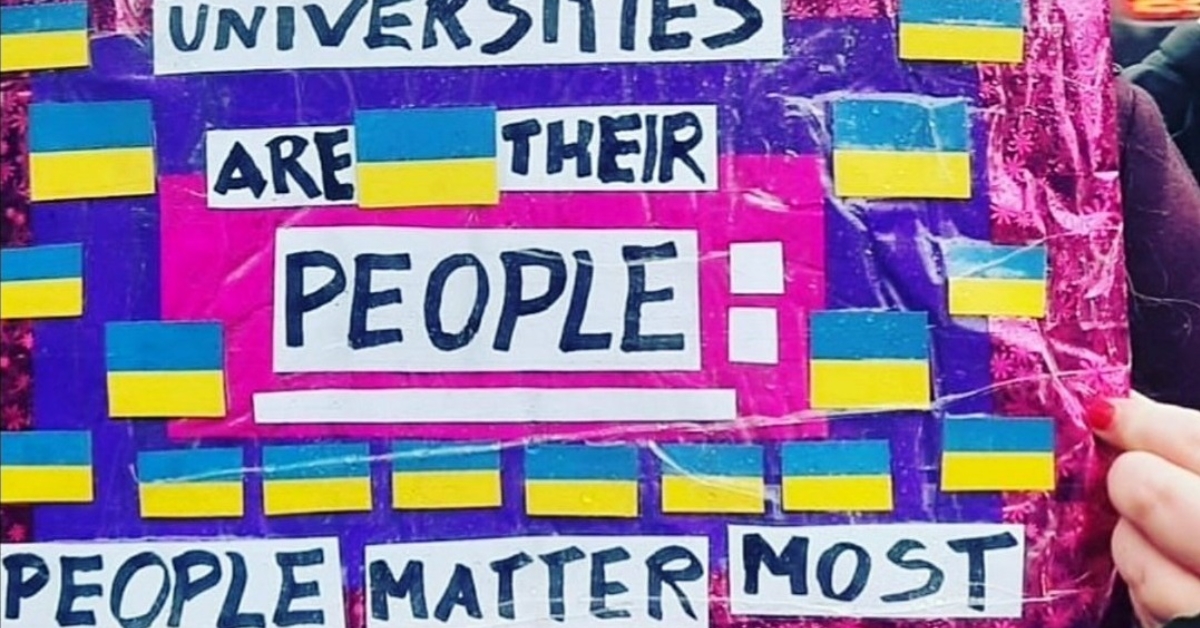
Dispatches from the picket lines, Tuesday 1 March
1 March 2022
Image: University of Manchester UCU picket lineToday UCU members at 63 universities continued strike action over our Four Fights: casualisation and precarity; gender, ethnic and disability pay gaps; hazardous workloads; and pay erosion. As always, you can follow some of the action here. The presidential team could be spotted at the picket lines at Lancaster and Oxford Brookes. Students have occupied buildings at Bristol, SOAS, Manchester, Cambridge and Liverpool in solidarity with university staff.
Tomorrow (Wednesday 2 March) from 12:00 to 16:00, the National Union of Students (NUS) is running their Student Strike for Education in Torrington Square and Woburn Square in London. Please click here for their website and here for their day programme, and support the NUS if you can after your morning pickets. Often senior managers seek to weaponise students against us, but it's clearer than ever that our fights are connected, and students don't want to learn in the same environment that damages staff.
In yesterday's dispatches I concentrated on casualisation, and today I want to discuss our deteriorating pay and pay inequality across the sector. With retail price index (RPI) hitting 7.8% as of January 2022 (a 30-year high), UCU estimates that university staff pay is now down by 25.5% in real terms since 2009. You'll recall that, in 2020-21, the employers' representative Universities and Colleges Employers Association (UCEA) made a 0% pay offer. For this round of negotiations, UCEA is offering 1.5%. With energy bills for a typical household set to increase by 54% or £693 a year as well, UCEA's offer is going to put many of our casualised members into a position of serious financial hardship. Meanwhile, the gender pay gap in UK universities currently sits at 15.1%, the disability pay gap is 9% and the pay gap between Black and white staff in the sector is 17%. This is an unconscionable situation especially with university vice-chancellors taking home on average full pay packages of £269k per year, with some being paid as much as £584k a year and £100k for 'accommodation costs'.
Again UCU's demands are simple and moderate. On pay, UCU members are asking for: a £2,500 pay uplift on all points; £10 minimum per-hour wage for all contract types; and a 10:1 maximum sector-wide pay ratio. To solve the problem of pay inequality, we are asking for: a national time-specific action to close the gender, ethnic and disability pay gaps agreed by each higher education institution; an implementation agreement which is progressed and reported back to the joint negotiating committee; and with higher education institutions to encourage staff to declare their protected characteristics to help address discrimination. University bosses will claim that 'there's no money in the bank'. However, figures from the Higher Education Statistics Agency (HESA) actually show that there are now more students in UK higher education than ever: 2,751,865 (as of 2020-21). This is an increase of 9% compared to 2019-20, and within the same timeframe, the total number of academic staff increased by 0.4% and we know what that means for our workloads. From 2019-20, total income across the higher education sector was £41.9bn with reserves of £46.8bn. All this suggests that senior managers have made a conscious choice. They've chosen not to invest in you--the people who make everything happen at universities.
I'd like to ask you to carry on using UCU's tool to email your vice-chancellors to make sure that your voices are heard, and to donate anything you can to the UCU fighting fund, especially if you're in a non-striking branch. Finally, as I mentioned yesterday, UCU has made a donation of £1,000 to UNICEF's emergency appeal for Ukraine. UCU sends steadfast solidarity to all those affected by the devastating events taking place in Ukraine and you can read UCU's statement here.
Solidarity
Jo Grady
UCU general secretary
Click here to read earlier editions of 'Dispatches from the picket lines'.
- PrintPrint this page
- Share


